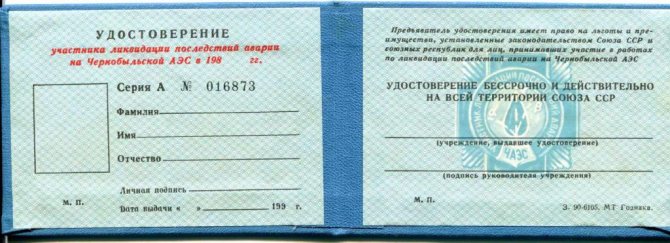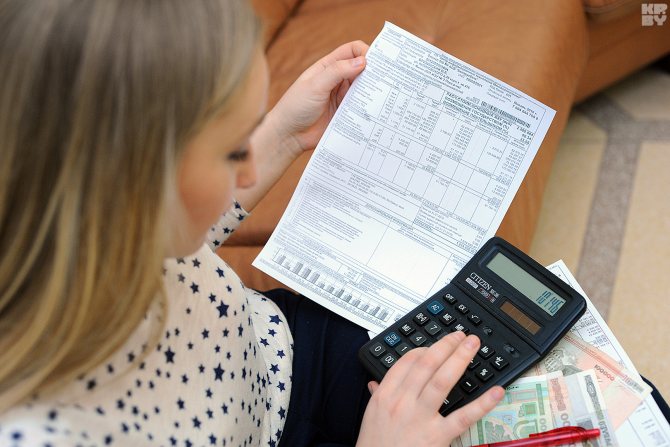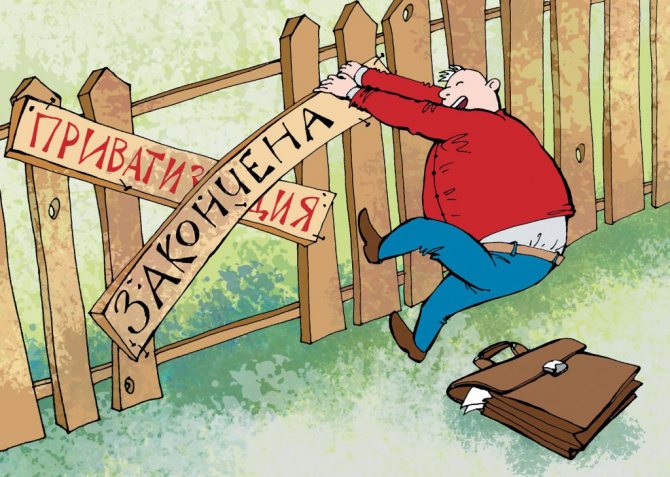What is municipal housing and who can apply for it?
According to the provisions of the Housing Code of the Russian Federation, there are several categories of residential premises on the territory of our country.
The following categories can be mentioned:
- specialized (for example, service housing);
- privatized;
- private;
- social (municipal housing belongs to this category).
Municipal housing is real estate that is owned by a particular locality and is allocated to citizens on the basis of a social rental agreement.
The social tenancy agreement stipulates the rights and obligations of the tenant and the landlord of municipal housing.
The Housing Code of the Russian Federation (Article 51) specifies the categories of persons who have the opportunity to apply for municipal living space:
- citizens who do not yet rent housing under a social rental agreement (this condition also applies to members of the applicant’s family. In addition, the applicant must not own real estate or be a member of a family that owns any housing);
- citizens living in an area calculated to be less than 10 square meters per resident;
- citizens who own real estate (or rent it under a social tenancy agreement), provided that the premises do not meet sanitary standards.
Those who have the right to receive a municipal apartment out of turn are identified:
- children left without parents;
- large families;
- liquidators of the consequences of the Chernobyl accident;
- persons falling under the category of forced migrants;
- victims of natural disasters and disasters;
- patients with chronic diseases or pathologies that are dangerous to the environment;
- military personnel;
- WWII veterans.
In order to get on the waiting list for social housing, you need to obtain official status as a low-income citizen (or low-income family). The document that confirms the grounds for the right to use social housing is called a “certificate of need.”
You can issue a certificate at the MFC or local government authorities; for this you will need the following documents:
- passports of all family members and birth certificates of minors (if they do not already have a passport);
- TIN of all family members (if the number has not yet been assigned for any reason, you must obtain it);
- documents confirming marital status (marriage certificate or divorce certificate);
- documents confirming the social status of the beneficiary (disability certificate, Chernobyl certificate, certificate of status of participant in the Second World War, military serviceman’s certificate, etc.);
- a document confirming that family members do not own other housing;
- a document confirming that the existing housing is recognized as unsafe or unsuitable for living (required in some cases).

To obtain a “certificate of need,” a participant in the liquidation of the consequences of the accident at the Chernobyl nuclear power plant will need, among other things, a Chernobyl certificate
Documents are reviewed within 30 days. After this, the applicant is informed in writing whether he will be put on the waiting list for municipal housing or not. Refusal must be motivated. If the decision is positive, then the application is assigned a serial number. You should be prepared for the fact that the wait for municipal housing will drag on for years.
When renting municipal housing, a social tenancy agreement is concluded.
A social rental agreement is a document according to which one party, in the form of a municipal or state body, provides living space to a needy party under certain conditions.
Under a social tenancy agreement, a citizen receives the following rights:
- use of housing;
- use of all amenities;
- possibility of privatization (under certain conditions).
It is worth keeping in mind that the tenant does not have ownership rights to such living space.
A social tenancy agreement is concluded for an indefinite period and is terminated only if the tenant fails to comply with the rules of living in social housing.
Composition of municipal property
The property of the municipality includes a wide range of objects, which include the following:
- firstly, property that is intended to provide solutions to issues of local significance;
- secondly, property that is intended for the implementation of state powers delegated to municipal government bodies;
- thirdly, property that ensures the activities of municipal government bodies and municipal officials, municipal employees, personnel of municipal institutions and enterprises in accordance with the regulatory framework of a representative municipal government body;
- fourthly, property that is used to resolve issues that are under the jurisdiction of municipal authorities, but are not included in issues of local significance;
- fifthly, other property that is intended for the implementation by municipal government bodies of their powers.
Need advice on your academic work? Ask a question to the teacher and get an answer in 15 minutes! Ask a Question
Note 2
The legislation establishes requirements for the need to repurpose or alienate municipal property if it extends to objects that do not meet the purposes of using municipal property in accordance with the requirements of the law.
Rights and obligations of the employer
The tenant of a residential premises under a social tenancy agreement has the right:
- move other persons into the occupied residential premises;
- sublease residential premises;
- allow temporary residents to live in residential premises;
- exchange or replace occupied residential premises;
- require the landlord to carry out timely major repairs, properly participate in the maintenance of common property in an apartment building, as well as the provision of utilities.
The tenant of a residential premises under a social tenancy agreement is obliged to:
- use the residential premises for their intended purpose and only within the framework of the social tenancy agreement;
- ensure the safety of living quarters;
- maintain the proper condition of the living space;
- carry out routine repairs of residential premises;
- pay rent and utilities on time;
- inform the landlord within the time period established by the contract about changes in the grounds and conditions giving the right to use residential premises under a social tenancy agreement.

The tenant of municipal housing undertakes to maintain the proper condition of the premises he occupies.
It is worth keeping in mind that only the owner of the property has the right to sell it. Due to the fact that the tenant of municipal housing is not the owner, he does not have such a right. In this case, there is the possibility of exchange. However, this requires obtaining permission from the landlord.
The procedure for exchanging non-privatized apartments is characterized by the following features:
- upon conclusion of the contract there is no transfer of ownership;
- exchange is possible only with the consent of all adult citizens living in both properties;
- when concluding a contract, written approval from both landlords is required, but their refusal is possible only on the grounds provided for in the Housing Code of the Russian Federation;
- an exchange agreement for non-privatized apartments cannot be of a compensatory nature, since tenants do not have the right to dispose of the property and receive money for it.
Conditions under which the exchange of residential premises under social tenancy agreements is not allowed:
- a claim has been brought against the tenant of the exchanged residential premises for termination or amendment of the social tenancy agreement for residential premises;
- the right to use the exchanged residential premises is disputed in court;
- the exchanged residential premises are recognized as unfit for habitation;
- a decision has been made to demolish the relevant house or renovate it for other purposes;
- a decision has been made to overhaul the relevant house with reconstruction and (or) redevelopment of residential premises in this house;
- as a result of the exchange, a citizen suffering from one of the severe forms of chronic diseases specified in the Housing Code of the Russian Federation (clause 4, part 1, article 51) moves into an apartment or house.
As mentioned above, municipal real estate can be sublet.
To do this, the tenant must obtain the written consent of the owner (municipality) and other residents. Part of the living space or the entire premises can be rented out (if the tenants leave temporarily). The subtenant does not receive the right to independently dispose of it and responsibility for its condition remains with the employer.
Subletting is not possible if:
- a person already lives (or moves in) there, suffering from diseases that make living together with him in the same apartment impossible;
- there is no consent of all residents and the municipality;
- after the subtenants move in, each tenant has less than 10 square meters. m. area.
Who can live in public housing with the tenant?
In addition to the tenant, the following may live in a municipal apartment:
- spouse;
- children;
- parents;
- other relatives;
- dependents who were accommodated as family members.

Members of his family and other relatives may live with the tenant in municipal housing
These citizens have competence at the employer level. Members of the tenant's family who are capable and limited by the court in legal capacity are jointly and severally liable with the tenant for the obligations arising from the social tenancy agreement. The temporary absence of the employer or family members living with him does not entail a change in their rights and obligations under the social tenancy agreement.
New members of the tenant's family (for example, children or spouse) are registered in the apartment by written agreement with relatives who already live with the tenant and are included in the social rental agreement.
In order to register other citizens as family members living with him/her, written permission from the landlord will also be required. The latter may refuse, subject to violation of the regulated area per tenant. There is no requirement to obtain permission to move in only young children whose parents are registered in a municipal apartment.
Registration of a child for municipal housing is carried out without the consent of those registered in it and without taking into account space standards. After registration in municipal housing, the child acquires the right to a share in the event of its privatization.
Outsiders move in temporarily, for no more than six months. If for some reason the owner refuses to move in, you can go to court about the unlawfulness of the action. Non-permanent residence is not a reason for eviction if all terms of the contract are met. When it is agreed upon for a new tenant to move in, he is included in the rental agreement, and he becomes equal in rights among all residents.
Payment of utility services
Residents of the municipal square are required to pay a number of services and fees.
The payment includes the following:
- rental, maintenance and repair of housing (we are talking about current repairs);
- heating;
- water supply and sewerage;
- gas;
- electricity;
- garbage removal;
- cleaning the local area, etc.

The tenant of municipal housing is obliged to pay utility bills
Citizens classified as low-income are exempt from paying rent. However, paying utility bills and maintaining the premises are their responsibilities.
Tariffs are calculated using a special formula, which includes the base rate (determined by the municipality), the area of the apartment, the coefficient of the condition of the housing and its consumer qualities.
The category of housing and communal services does not include major repairs.
Video: cost of social hiring
All about repairs
If the apartment is not the property of a person (he only lives under a social tenancy agreement), the cost of major repairs of a municipal apartment falls either on the municipality or on the landlord. However, cosmetic and current repairs are carried out at the expense of the employer and permission from the municipality is not required.
Cosmetic and current repairs involve the following actions:
- whitewashing or painting walls, floors, ceilings, radiators and window openings, doors;
- wallpapering;
- repair of engineering systems inside the apartment.
In order to carry out redevelopment, permission from local authorities will be required. This is due to the fact that there is a risk of compromising the integrity of the load-bearing walls.
Force majeure with public housing
Force majeure refers to force majeure circumstances that do not depend on the will or actions of the parties to the contract. It can be:
- natural disasters (hurricanes, tsunamis, earthquakes, floods, etc.) or man-made disasters, as a result of which the apartment becomes unsuitable for further rent by the tenant;
- a strike or military action that takes place in the area where the residential area is located;
- measures aimed by the state to prohibit actions specified in the rental agreement.
If a tenant loses an apartment as a result of a fire or natural disaster, he has the right to apply for the provision of other housing out of turn. To do this, you need to contact your local administration.
The algorithm of actions may be as follows:
- Obtain a certificate from the local Ministry of Emergency Situations stating that the housing was damaged during a natural disaster or burned down during a fire.
- Contact the housing and communal services department, which must check the water supply, heating and power supply systems for their suitability for use. Based on the results of such an inspection, the housing and communal services issues an official conclusion.
- Write letters to the head of the local administration, housing and communal services and social security authorities requesting financial support in connection with the disaster, indicating the estimated cost of losses.
- After receiving the above documents, the tenant must contact the local administration with a written statement that as a result of the fire he was left homeless and needs either compensation or new living space. If the technical report indicates that the housing is suitable for use, then the tenant is only entitled to compensation. If this document states that it is impossible to live in the damaged municipal premises, then the tenant can count on new housing.
- Next, certificates are collected (about income, taxes paid, family composition, etc.). They are necessary for the tenant to be put on a waiting list for a new living space.
Even if those in need of new housing do everything that is required of them in such a situation, this does not guarantee that housing will be immediately provided. Local administrations often do not have this opportunity. However, if there is a reserve stock of residential premises, then the tenant may be provided with housing out of turn to live in such a housing stock on a temporary basis.
Privatization of municipal housing
Privatization of municipal housing is a free transfer into the ownership of citizens of the Russian Federation of the real estate they occupy. A privatized apartment (or house) can be used as needed by its owner or owners, which provides a significant advantage, since it is no longer possible to legally evict someone from an occupied home due to emergency circumstances.
The main advantages of privatization can be identified:
- the citizen receives the right to fully dispose of property (renting, selling, exchanging);
- It is almost impossible to evict from privatized housing for non-payment of utilities;
- the owner has the right to inherit such real estate;
- privatized housing may be the subject of a loan agreement;
- there is an opportunity to carry out legal redevelopment.

The owner of privatized housing has the right to dispose of it at his own discretion
The disadvantages of privatization include the following:
- the need to pay property taxes;
- an increase in the amount of payment for utilities (for example, for the repair and maintenance of common residential premises, major repairs);
- complicated inheritance process (in the absence of a will, all heirs have the right to claim housing).
In order to carry out the process of housing privatization, those interested in this must meet certain requirements.
The list of requirements includes:
- having citizenship of the Russian Federation;
- a particular citizen has not previously participated in privatization;
- the privatization process itself will be carried out voluntarily;
- the citizen is included in the social tenancy agreement;
- there is permanent registration for a specific residential area, and the citizen himself lives at the address specified in the contract.
The procedure for participating in privatization for one person is possible only once in a lifetime. Moreover, the fact that the citizen has not previously participated in privatization will need to be documented.
If a citizen has already participated in such a procedure as a minor, then he has the right to re-privatization after adulthood. Not all citizens living in them can exercise their right to privatize an apartment, since some residential premises cannot be privatized.
It is prohibited to privatize the following housing:
- recognized as emergency;
- located in the hostel;
- located on the territories of closed military installations and received by citizens for temporary use for periods not exceeding the terms of service;
- relating to private or public housing stock;
- issued to citizens exclusively for official use.
All other apartments and houses, including those of architectural and historical value, as well as those in need of major repairs and reconstruction, are subject to privatization.
It is worth noting that in 2021, the government of our country decided to abandon the deadline for free privatization of housing. The corresponding law came into force that same year.
The amendments on unlimited privatization provide citizens with enough time to consider all the advantages and disadvantages of the privatization procedure in order to decide whether they are interested in it or not.
Municipal property: concept, structure, functions
Municipal property is a determining part of the financial and economic basis of local self-government and one of the main levers for the implementation of local socio-economic policy. Municipal property serves as the basis for the independence and independence of local self-government, an instrument of social protection and support for the population of the territory.
Municipal property in accordance with Art. 130 of the Constitution of the Russian Federation is not a type of state property. This is an independent form (type) of ownership. In accordance with Art. 49 of the Federal Law “On the General Principles of the Organization of Local Self-Government in the Russian Federation”, municipal property is recognized and protected by the state on an equal basis with other forms of property. Article 50 of this law determines that municipalities may own:
1) property intended to resolve issues of local importance established by this Federal Law;
2) property intended for the exercise of certain state powers transferred to local self-government bodies, in cases established by federal laws and laws of constituent entities of the Russian Federation, as well as property intended for the exercise of certain powers of local self-government bodies;
3) property intended to support the activities of local government bodies and local government officials, municipal employees, employees of municipal enterprises and institutions in accordance with the regulatory legal acts of the representative body of the municipality;
4) property necessary to resolve issues, the right to resolve which is granted to local governments by federal laws and which are not classified as issues of local importance.
The Federal Law “On the General Principles of the Organization of Local Self-Government in the Russian Federation” establishes a list of property in settlements, municipal districts, and urban districts.
Settlements may own:
1) property intended for electricity, heat, gas and water supply to the population, drainage, supply of fuel to the population, for lighting the streets of populated areas;
2) highways of local importance within the boundaries of populated areas, as well as property intended for servicing such highways; property intended for organizing the protection of public order within the boundaries of the settlement;
3) housing stock for social use to provide low-income citizens living in the settlement and in need of residential premises with residential premises under the terms of a social tenancy agreement, as well as property necessary for the maintenance of the municipal housing stock;
4) passenger transport and other property intended for transport services to the population within the boundaries of the settlement;
5) property intended to prevent and eliminate the consequences of emergency situations within the boundaries of the settlement;
6) property intended to ensure primary fire safety measures;
7) property of settlement libraries;


9) objects of cultural heritage (historical and cultural monuments) regardless of the category of their historical and cultural significance in accordance with the legislation of the Russian Federation;
10) property intended for the development of physical culture and mass sports on the territory of the settlement;
11) property intended for organizing the improvement and landscaping of the territory of the settlement, including for the arrangement of public places and places of mass recreation for the population;

12) property intended for the collection and removal of household waste and garbage;
13) property, including land plots intended for organizing funeral services and maintaining burial places;
14) property intended for the official publication (promulgation) of municipal legal acts and other official information;
15) land plots classified as municipal property of the settlement in accordance with federal laws;
16) ponds, flooded quarries on the territory of the settlement;
18) property intended for the creation, development and protection of medical and recreational areas and resorts of local importance on the territory of the settlement;
19) property intended for organizing the protection of the population and territory of the settlement from natural and man-made emergencies;
20) property intended to ensure the safety of people on water bodies, protect their life and health;
21) property intended for the development of small and medium-sized businesses in the settlement, including for the formation and development of infrastructure to support small and medium-sized businesses;
22) property intended to provide support to socially oriented non-profit organizations operating in the territory of the settlement.
Settlements may own other property necessary to exercise powers to resolve issues of local importance to the settlements.
Municipal districts may own:
1) property intended for electricity and gas supply to settlements within the boundaries of the municipal district;
2) highways of local importance outside the boundaries of populated areas within the boundaries of a municipal district, as well as property intended for servicing such highways;
3) passenger transport and other property intended for transport services to the population between settlements in the territory of the municipal district;
5) property intended to prevent and eliminate the consequences of emergency situations on the territory of the municipal district;
6) property intended for organizing the protection of public order in the territory of the municipal district by the municipal police;
7) property intended to provide publicly accessible and free pre-school, primary general, basic general, secondary general education, as well as the provision of additional education and organization of recreation for children during the holidays;


9) property intended for disposal and processing of household and industrial waste;
10) archival funds, including the cadastre of land management and urban planning documentation, as well as property intended for storing these funds;
11) property, including land plots, intended for maintaining inter-settlement burial sites and organizing funeral services on the territory of the municipal district;
12) property of inter-settlement libraries;
13) property necessary for the official publication (promulgation) of municipal legal acts and other official information;
14) land plots classified as municipal property of a municipal district in accordance with federal laws;
15) ponds, flooded quarries located on the territories of two or more settlements or on the inter-settlement territory of a municipal district;
16) property intended for the creation, development and protection of medical and recreational areas and resorts of local importance in the territory of the municipal district;
17) property intended to provide settlements included in the municipal district with services for organizing leisure time and services of cultural organizations;
18) property intended for the development of physical culture and mass sports on the territory of the municipal district;
19) property intended for organizing the protection of the population and territory of the municipal district from natural and man-made emergencies;
20) property intended to ensure the safety of people on water bodies, protect their life and health;
21) objects of cultural heritage (historical and cultural monuments) regardless of the category of their historical and cultural significance in cases established by the legislation of the Russian Federation;
22) property intended to promote the development of small and medium-sized businesses in the territory of the municipal district, including for the formation and development of infrastructure to support small and medium-sized businesses;
23) property intended to provide support to socially oriented non-profit organizations in the territory of the municipal district.
Municipal districts may own other property necessary to exercise powers to resolve issues of local importance to municipal districts.
Urban districts may own all types of property listed above.
Municipal property is property owned by right of ownership to urban and rural settlements, as well as other municipalities (Article 215 of the Civil Code of the Russian Federation). On behalf of the municipality, the rights of the owner are exercised by local government bodies within the framework of their competence established by acts defining the status of these bodies. They have the right to transfer municipal property for temporary or permanent use to individuals and legal entities, government bodies of the Russian Federation, constituent entities of the Federation, local government bodies of other municipalities, alienate, and make other transactions in accordance with federal laws.
Property owned by the municipality is divided into two parts:
1) property assigned to municipal enterprises and institutions for possession, use and disposal in accordance with Art. 294, 296 Civil Code of the Russian Federation;
2) the municipal treasury of the corresponding urban, rural settlement or other municipal entity and includes funds from the local budget and other municipal property not assigned to municipal enterprises and institutions (Article 215 of the Civil Code of the Russian Federation).
Municipal enterprises and institutions to which certain property is assigned exercise the powers of ownership, use, and disposal in relation to it, but not as owners, since their actions to manage the entrusted property are limited by the discretion of local government bodies.

Municipal enterprises own, use, dispose of the property assigned to them with the right of economic management (Article 294 of the Civil Code of the Russian Federation), for example, in the urban district of the city of Sterlitamak such municipal unitary enterprises (MUP) have been created as "Electric Networks" "Sterlitamak Specialized Repair and Construction Department of Road and Landscaping Works", "Mezhraikommunvodokanal", "Sterlitamak Trolleybus Department" and others
.
Local government bodies, when creating municipal enterprises, determine the subject and goals of the activities of these enterprises, resolve issues of appointment and dismissal of heads of municipal enterprises, reorganization and liquidation of the latter, regulate prices and tariffs for their products (services), exercise control over the intended use and safety of their property. property enterprises, hear reports from the managers of these enterprises on their activities.
Enterprises do not have the right to sell real estate property owned by them under the right of economic management, rent it out, pledge it, make a contribution to the authorized (share) capital of business companies and partnerships, or otherwise dispose of this property without the consent of the relevant local government bodies. As a general rule, municipal enterprises manage the rest of their property independently. Municipal entities represented by local government bodies have the right to receive part of the profit from the use of property under the economic control of enterprises[10].
Municipal institutions own and use the property assigned to them with the right of operational management (Article 296 of the Civil Code of the Russian Federation).
A municipal institution can be an autonomous, budgetary or state institution. Municipal institutions are institutions created by a municipal entity.
A municipal autonomous institution is recognized as a non-profit organization created by a municipal entity to perform work, provide services in order to exercise the powers of local government bodies provided for by the legislation of the Russian Federation in the fields of science, education, healthcare, culture, the media, social protection, employment, physical culture and sports, as well as in other areas in cases established by federal laws (including when carrying out activities to work with children and youth in these areas) (Article 2 of the Federal Law of 03.11.2006 No. 174-FZ (as amended on 03.12. 2012) “About autonomous institutions”)
.
Example: Municipal autonomous educational institution "Gymnasium No. 1" of the urban district of the city of Sterlitamak of the Republic of Bashkortostan, Municipal autonomous educational institution of additional education "Palace of Pioneers and Schoolchildren named after A.P. Gaidar" of the urban district of the city of Sterlitamak of the Republic of Bashkortostan, Municipal autonomous preschool educational institution " Kindergarten No. 2 - general developmental type of the urban district of the city of Sterlitamak of the Republic of Bashkortostan, etc.
.
A municipal budgetary institution is recognized as a non-profit organization created by a municipal entity to perform work, provide services in order to ensure the implementation of the powers of local government bodies provided for by the legislation of the Russian Federation in the fields of science, education, healthcare, culture, social protection, employment, physical culture and sports, and also in other areas (Article 9.2 of the Federal Law of January 12, 1996 No. 7-FZ (as amended on July 2, 2013) “On Non-Profit Organizations”)
.
Example: Municipal budgetary healthcare institution "City Clinic No. 1" of the urban district of the city of Sterlitamak of the Republic of Bashkortostan, Municipal budgetary healthcare institution "Children's sanatorium "Rainbow" of the urban district of the city of Sterlitamak of the Republic of Bashkortostan", Municipal budgetary institution "Centralized Library System" of the urban district of the city of Sterlitamak of the Republic Bashkortostan, Municipal budgetary institution Sports Palace “STERLITAMAK-ARENA”, etc.
.
A municipal government institution is a municipal institution that provides municipal services, performs work and (or) performs municipal functions in order to ensure the implementation of the powers of local government bodies provided for by the legislation of the Russian Federation, the financial support of whose activities is carried out from the funds of the corresponding budget on the basis of the budget estimate ( Article 6 of the Budget Code of the Russian Federation dated July 31, 1998 No. 145-FZ (as amended on July 23, 2013)).
Example: The municipal government institution “Education Department of the City District Administration of the city of Sterlitamak of the Republic of Bashkortostan” was created on the basis of the decision of the Council of the urban district of the city of Sterlitamak of the Republic of Bashkortostan dated December 14, 2010 No. 2-14/45з; The municipal government institution “Department of Culture of the Administration of the Urban District of the City of Sterlitamak of the Republic of Bashkortostan” was created on the basis of the decision of the Council of the Urban District of the City of Sterlitamak of the Republic of Bashkortostan dated December 14, 2010 No. 2-14/45з; Municipal government institutions “Department for Youth Policy of the Administration of the Urban District of the City of Sterlitamak of the Republic of Bashkortostan”, “Committee on Physical Culture and Sports of the Administration of the Urban District of the City of Sterlitamak of the Republic of Bashkortostan”, etc. These institutions are non-profit organizations performing municipal functions in order to ensure the implementation of those provided for by law Russian Federation powers of the urban district of the city of Sterlitamak of the Republic of Bashkortostan, etc.
.
Municipal institutions have the right to own and use municipal property transferred under the right of operational management in the manner established by the legislation and regulations on these institutions.
Local government bodies, exercising the powers of the owner of municipal property, have the right to confiscate property assigned to institutions if it turns out to be redundant, is not used or is used for other purposes. Local governments have the right to dispose of such property at their own discretion. Institutions do not have the right to alienate or otherwise dispose of the property assigned to them or property acquired from funds allocated to them according to the estimate. Local government bodies, on behalf of the municipality, are subsidiarily (additionally) responsible for the obligations of municipal institutions and ensure their fulfillment.
The main difference between a government institution and an autonomous and budgetary one is that a municipal government institution is created to perform municipal functions, while municipal autonomous and budgetary institutions are created to perform municipal work, provide municipal services and do not have the right to perform municipal functions.
Municipal institutions also differ in financial support (See: diagram below).

The treasury of a municipality is the main component of municipal property. It is in the direct possession and disposal of the municipality.
It should be noted that the concept of “treasury of a municipal entity” in federal legislation is contained only in the Civil Code of the Russian Federation, which only frames this definition (Articles 214, 215 of the Civil Code of the Russian Federation). It is not mentioned in other federal laws; the legislation operates only with the concept of “municipal property” or the concept of “municipal budget”. At the same time, local government bodies adopt acts defining the legal status of the municipal treasury, its composition, the grounds for including property in the treasury, the general procedure for its accounting, maintenance and ensuring the effectiveness of the disposal of municipal treasury objects.
As an example, we can cite the Decision of the Council of the urban district of the city of Sterlitamak dated April 25, 2006 No. 5/9з “On approval of the regulations on the municipal treasury of the urban district of the city of Sterlitamak of the Republic of Bashkortostan”; Decision of the City Council of Deputies of the municipal formation of the city of Buzuluk, Orenburg Region, dated 06/07/2011 No. 136 “On approval of the Regulations on the municipal treasury of the municipal formation of the city of Buzuluk, Orenburg Region”; Decision of the Solontsovsky Village Council of Deputies of the Krasnoyarsk Territory dated June 30. 2011 No. 14-49r “On approval of the regulations on the municipal treasury of the municipal formation Solontsovsky Village Council”, etc.
.
The objects that make up the municipal treasury of the municipality are:
1) funds from the budget of the municipality (local budget);
2) real estate owned by the municipality and not assigned to municipal enterprises and institutions:
— detached residential and non-residential buildings;
- premises built-in and attached to residential buildings, but not being objects of the housing stock, in accordance with current legal acts and acts of the governing bodies of the municipality (non-residential premises);
- residential premises, shares in residential premises and separate rooms in them;
- municipal share in non-residential premises of a single complex of real estate, which is in the general share of ownership of the owners of the premises;
— land plots, other natural resources classified as municipal property of the municipality;
— enterprises (property complexes);
— buildings, structures (engineering infrastructure facilities, other utility structures);
- other immovable things.
3) movable property owned by the municipality and not assigned to municipal enterprises and institutions:
— machines, machines, equipment, inventories, stocks of raw materials and materials;
- securities;
— obligatory rights of a municipality in relation to business entities acquired by it in connection with participation in the formation of the property of these legal entities;
— other property rights of the municipality;
— objects of intellectual property of the municipality, including exclusive rights to them;
— archival funds and archival documents;
— software products and information databases;
- other movable things.
So, the municipal treasury of a municipal formation is created in order to strengthen the material and financial basis, preserve, rational and most effective use of municipal property used for the socio-economic development of the municipal formation, increase local budget revenues, provide the population with vital goods and services, attract investment and stimulating entrepreneurial activity on the territory of the municipality.
Municipal property performs two main functions.
The first is that municipal property serves as the basis for the economic independence of local self-government and ensures the manageability of the economy of the corresponding territory as a single whole. The presence of municipal property assigns to local government the exclusive right to monopolize the production of certain products and services and perform work specifically for a given territorial community. The provision of goods and services to the population through the municipal sector of the economy is often carried out at lower prices for private enterprises, and sometimes on a free basis. Moreover, the direct production of municipal goods is mediated by the regulatory role of social institutions, which allows us to talk about the social nature of this form of ownership. The presence of municipal property helps strengthen the position of local self-government and makes it possible to create for residents of a given territorial community a set of available benefits and benefits that will not infringe on their civil liberties and maintain an acceptable standard of living in this territory.
The second function of municipal property is that it serves as the main instrument of social protection and support for the population of the territory. The provision of municipal housing, the functioning of children's and educational institutions, local benefits for paying for utilities, targeted support for the needy and low-income people make it possible to maintain certain social standards of living for people in a given territory. Consequently, the presence of municipal property is a necessary condition for the protection of individual members of the territorial community and acts as a guarantor of a democratically organized state.
So, municipal property is one of the mandatory conditions for the existence of an independent municipal entity.
Eviction
The process of eviction of citizens from municipal housing is regulated by Art. 60 Housing Code of the Russian Federation.
According to the law, the following persons can initiate the eviction of a citizen from a municipal apartment:
- the landlord, that is, the owner of the premises - usually this is the administration of the locality;
- housing inspection bodies - based on the results of monitoring the operation of residential premises and compliance with the rules for their use;
- living in the same premises or former family members of the tenant - in case of infringement of rights or rough treatment;
- housemates - in case of systematic violation of social rules and norms.
Termination of a social tenancy agreement can be carried out out of court and in court.
Extrajudicial termination of a contract is possible in three cases:
- when this happens by agreement of the parties, i.e. there is no dispute between the tenant and the landlord about the legality and expediency of terminating the contract (by agreement of the parties, the contract can be terminated at any time, and any party has the right to initiate the termination of the contractual relationship);
- when the decision to terminate the contract is made by the tenant, but on the condition that the remaining members of his family living with him gave written consent to terminate the contract (this means that the tenant, with the written consent of all members of his family, has the right, without giving reasons and the consent of the landlord, to terminate the social contract hiring and moving out of the occupied residential premises);
- when the tenant and his family members left for another permanent place of residence (in this case, the social tenancy agreement is considered terminated from the date of departure).
Termination of a social rental agreement for residential premises in court is always carried out when the initiator of the termination of the agreement is the landlord. The exception is the case mentioned above, when the tenant agreed with the landlord’s initiative (in this case, the contract is terminated by agreement of the parties).
Grounds for termination of a contract in court:
- failure by the tenant to pay for housing and (or) utilities for more than six months;
- destruction or damage to residential premises by the tenant or other citizens for whose actions he is responsible (for example, subtenants, temporary residents);
- systematic (i.e. constantly repeated, non-stop) violation of the rights and interests of neighbors, making it impossible to live together in the same residential premises;
- use of residential premises for other purposes (on the purpose of residential premises and the limits of its use in Article 17 of the Housing Code of the Russian Federation).
Eviction occurs both with the provision of citizens with another housing, in place of the previous one, and without provision.
The housing that is transferred to the citizen after eviction must be located in the same locality where the citizen previously lived, and must meet all legal requirements regarding technical, fire and sanitary conditions. Housing is issued taking into account the area standards established by law for each resident.
As a rule, the basis for eviction with the provision of new housing is the recognition of the house as unsafe and unfit for habitation, or the demolition of the house.









